Frank’s West Side Auto Parts, at Kedzie Avenue and 30th Street, is an art gallery unto itself. Plus, there are other great signs in its vicinity, including more auto parts art and other examples of vernacular creativity.
Continue reading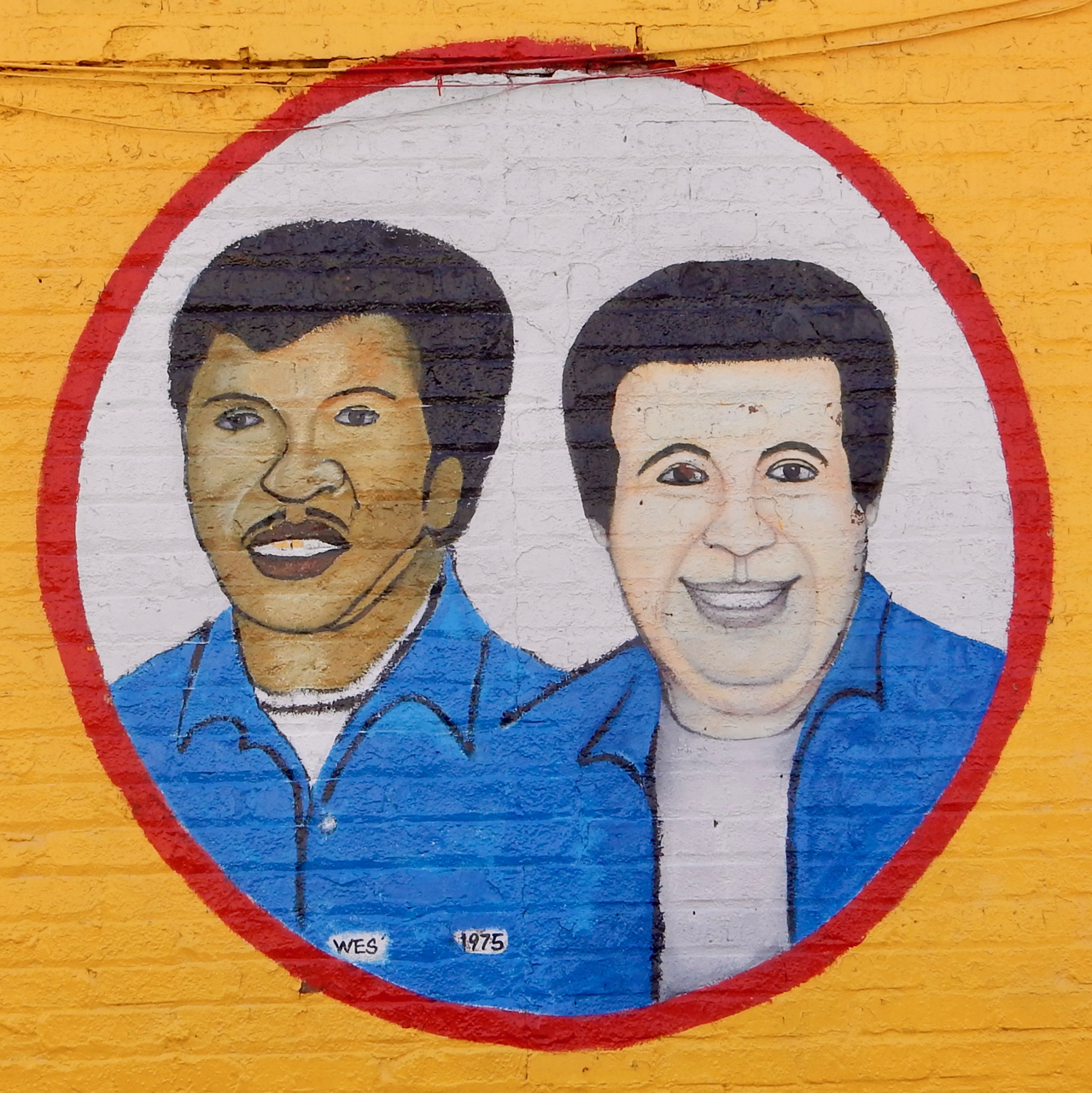

Frank’s West Side Auto Parts, at Kedzie Avenue and 30th Street, is an art gallery unto itself. Plus, there are other great signs in its vicinity, including more auto parts art and other examples of vernacular creativity.
Continue reading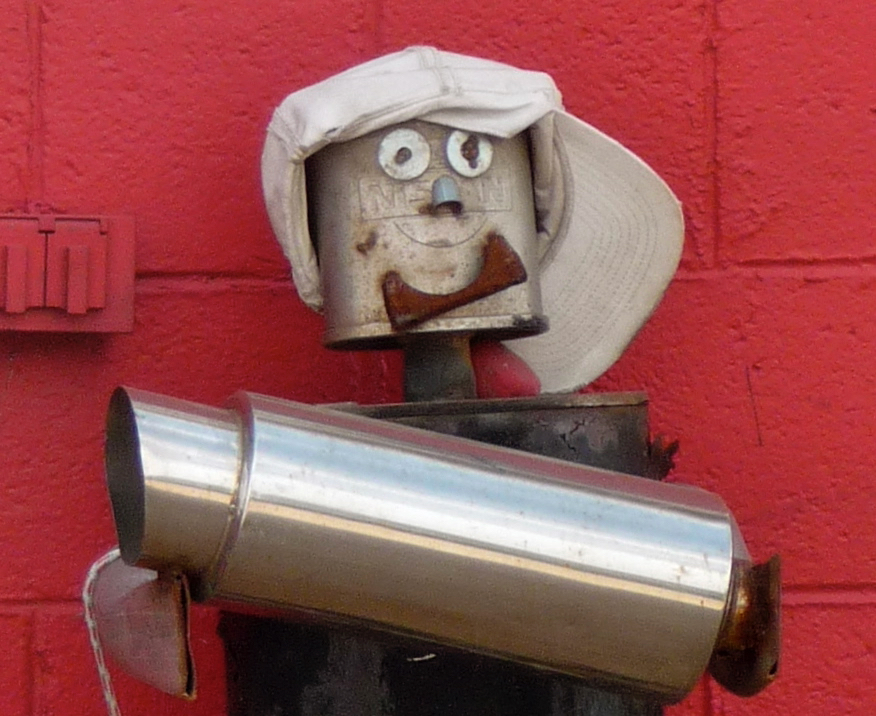
Denver streets were lined with some real beauties when these pictures of roadside art were taken earlier in the decade. Also two nice places from Colorado Springs. Whether in muffler men or murals, vernacular creativity abounds.
Continue reading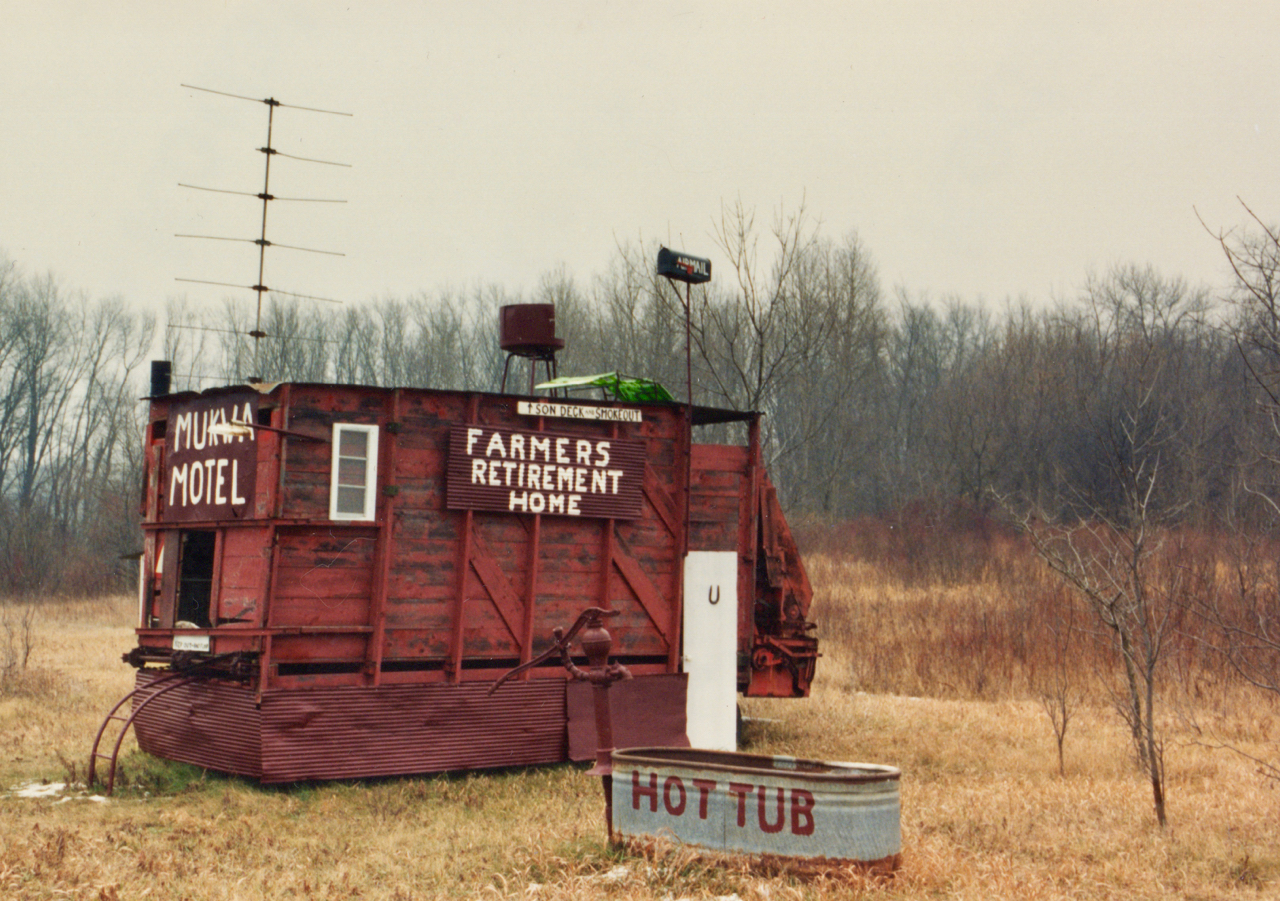
The Mukwa Motel/Farmers Retirement Home is a vernacular art environment on Wisconsin Highway 54 west of New London. It’s on the northern edge of the Mukwa State Wildlife Area and was photographed before 1995. An artful bit of rural humor built by farmer John Kraske shortly before his retirement. According to the Post-Crescent newspaper, he assembled the site in 1991, two years before he retired from farming. Kraske, who died at 96 in 2016, told the paper in 2001, “It’s just something some crazy farmer did who didn’t have anything better to do with his time.” “Every year or so
Continue reading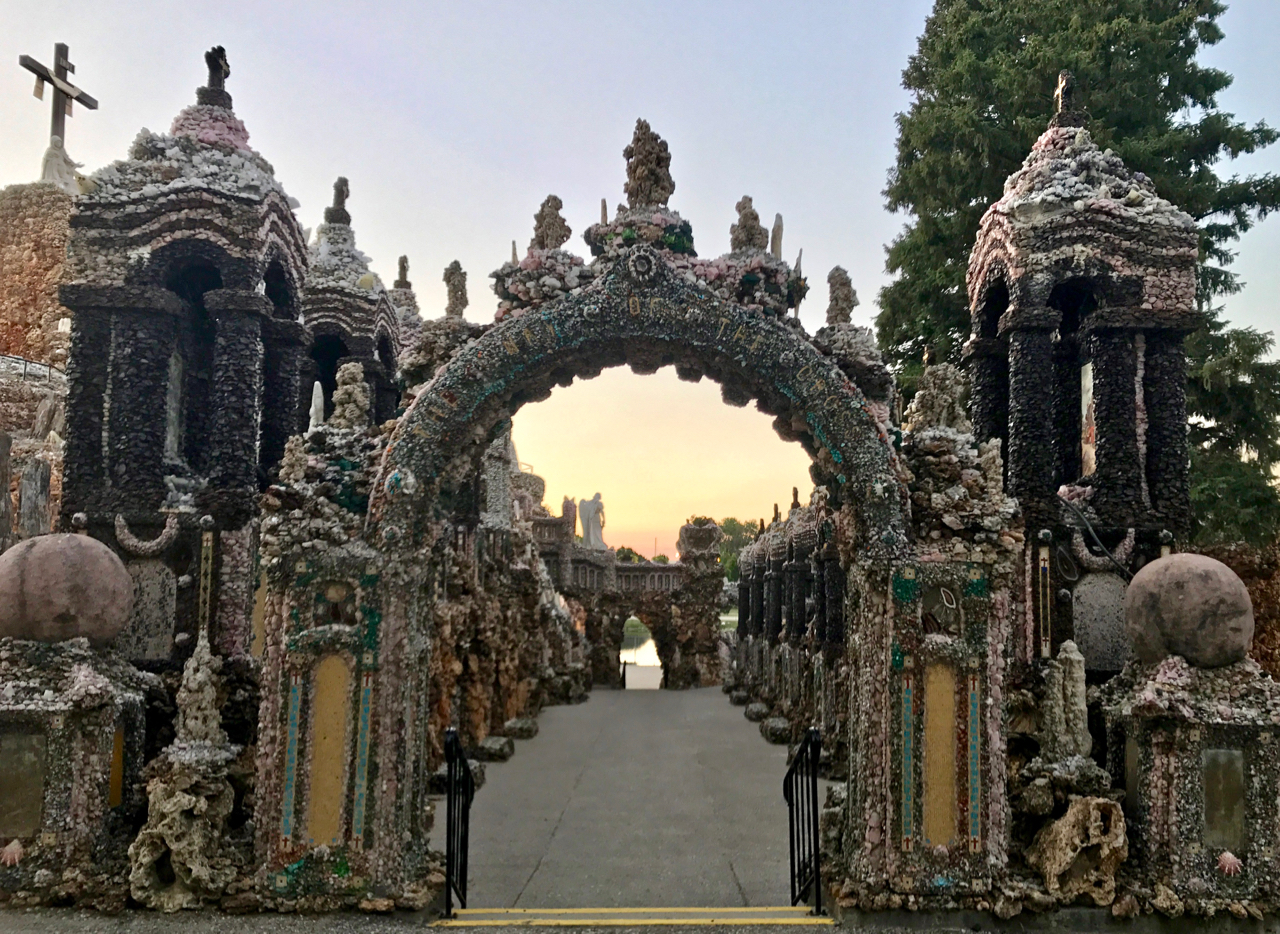
Father Paul Dobberstein’s Grotto of the Redemption in West Bend, Iowa, is on the way to nowhere, but the right way to go: It’s one of the most spectacular places in the world. Dobberstein was a parish priest with a vision, and the decades he spent fulfilling that vision paid off. For that we should be grateful not only to Dobberstein, but to the parishioners who tolerated and supported his obsession, which in turn helped spark similarly over-the-top constructions all over the upper Midwest. The grotto includes a number of mini-grottos and fountains as well as an avenue lined with
Continue reading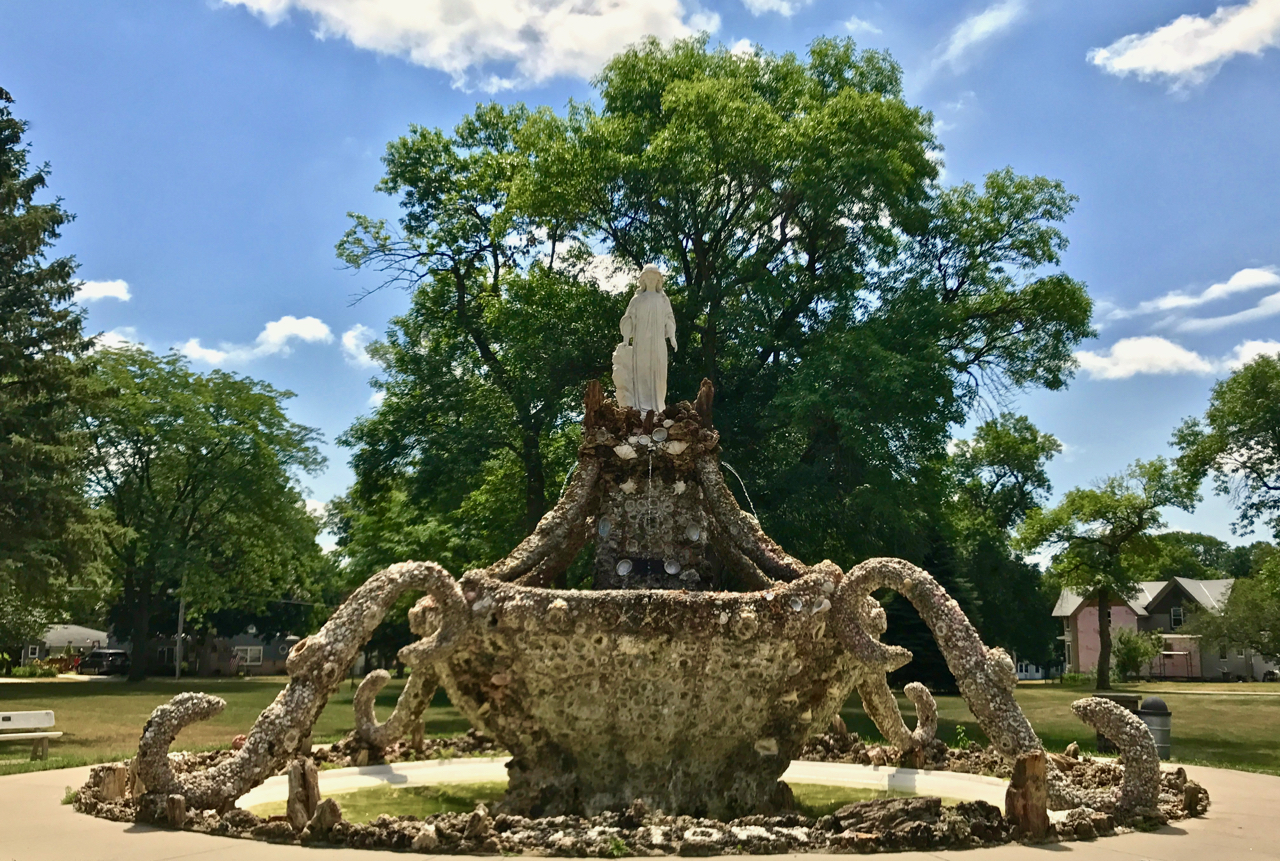
Another Iowa vernacular masterpiece built by Father Paul Dobberstein, creator of the Grotto of the Redemption. Dobberstein was commissioned to built this memorial, officially called the Liberty Fountain, in honor of Fay Hessian, a young girl who died from tuberculosis in 1912. The fountain was dedicated in 1918 and restored in 2011. It sits in a park in Humboldt, Iowa, with organic shapes and encrustations that make it unlike any city park fountain I’ve ever seen. Back to the Grotto of the Redemption
Continue reading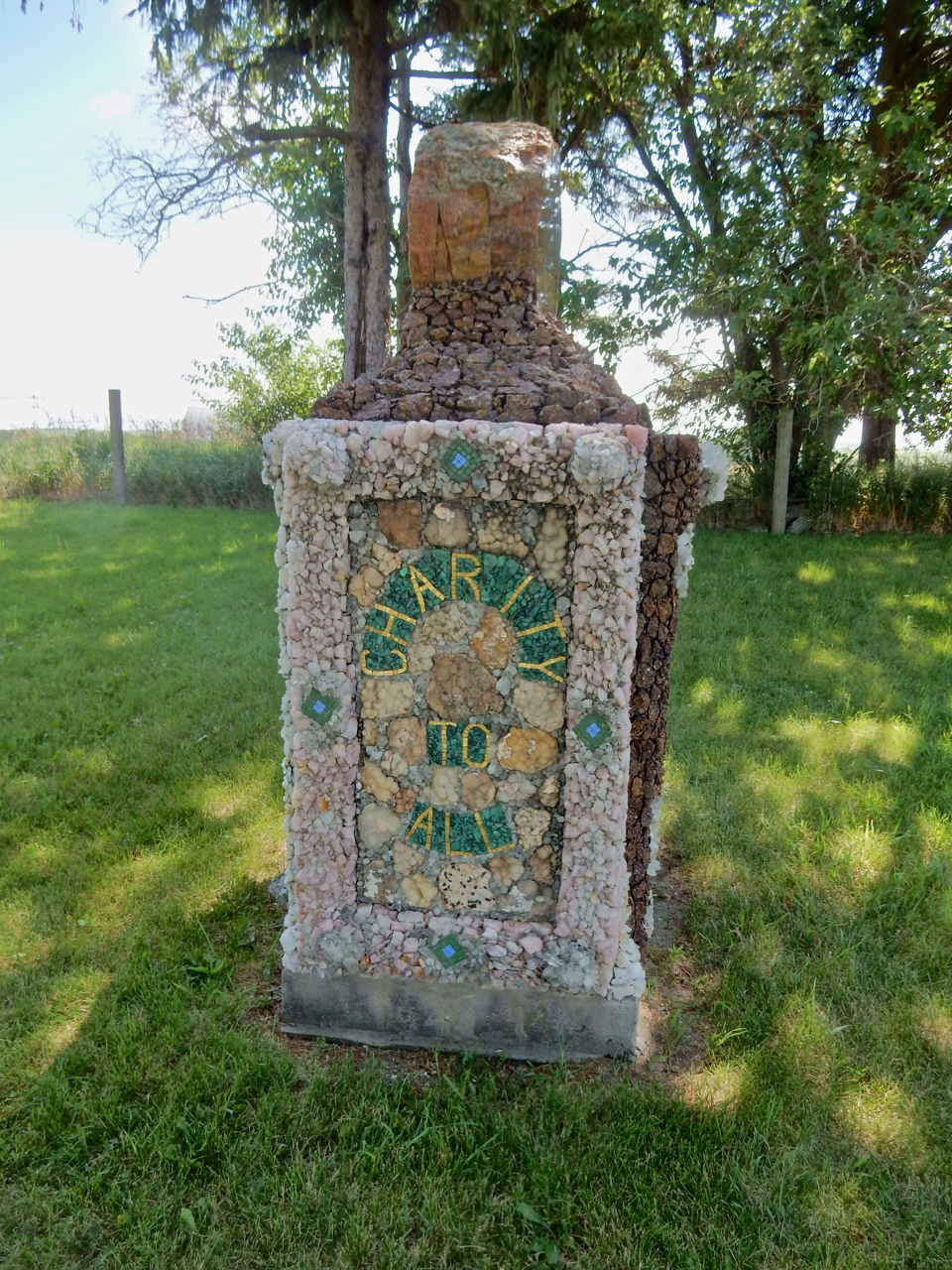
If Paul Dobberstein’s Grotto of the Redemption is out of the way, his War Memorial is nearly inaccessible. You have to follow gravel roads to what used to be the site of a town called Rolfe to find this modest structure sitting in the middle of a small grassy field. Back to the Grotto of the Redemption
Continue reading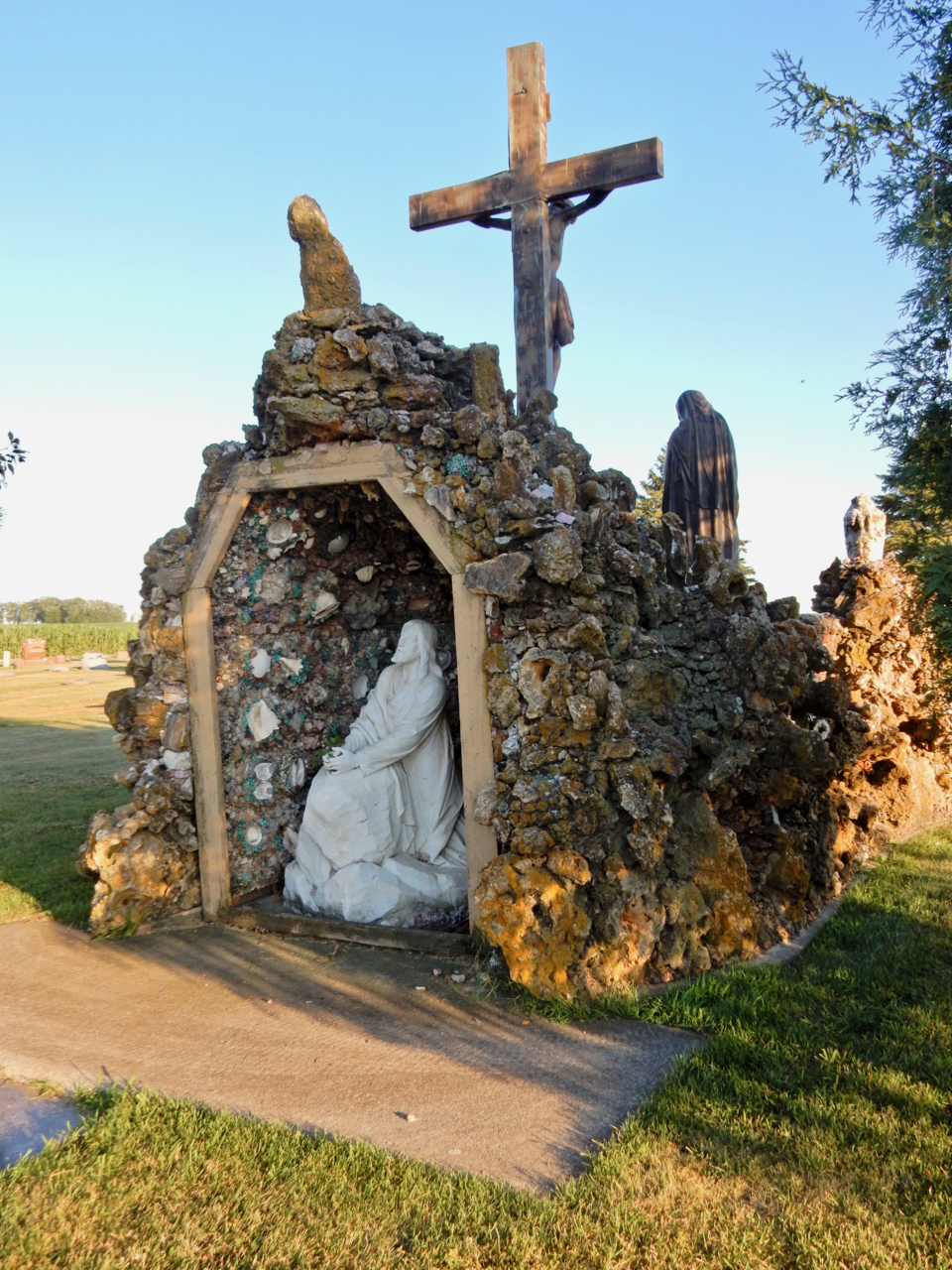
In an out-of-the-way cemetery in Wesley, Iowa, you can find Father Paul Dobberstein’s Crucifixion Group, a mini-grotto unto itself. It’s another example of the decorative impulse filling every available space with something that looks cool. And like the big grotto a few towns away, it provides an effective setting for the underlying religious message. Back to the Grotto of the Redemption
Continue reading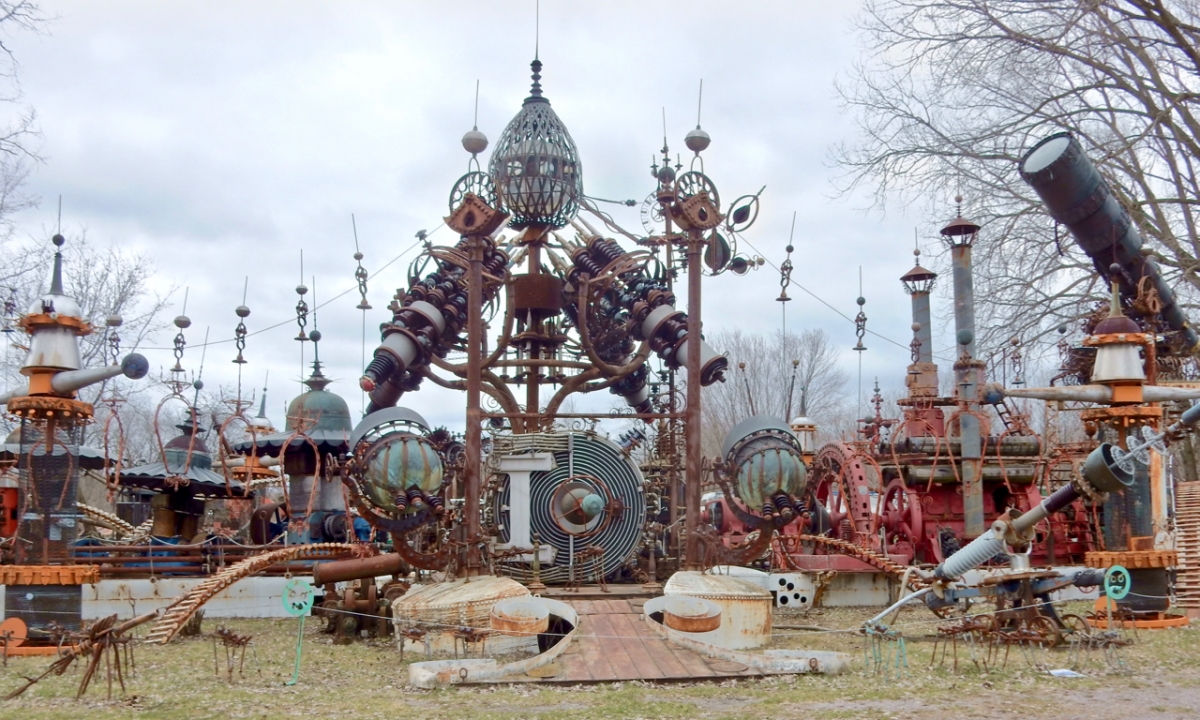
North of Madison and just south of Baraboo, Wisconsin, is one of the country’s great roadside attractions, Dr. Evermor’s Forevertron. The Forevertron is a steampunk paradise, with a Victorian look in service of science-fiction vision. Creator Tom Every, born in 1938, has experience as a farmhand, salvager, construction worker and architect’s assistant, according to Leslie Umberger’s Sublime Spaces and Visionary Worlds catalog. Every also helped to fabricate attractions at The House on the Rock, Wisconsin’s foremost tourist trap and a whole other story. He has involved explanations for the work, but the focus here is its visual impact. The site
Continue reading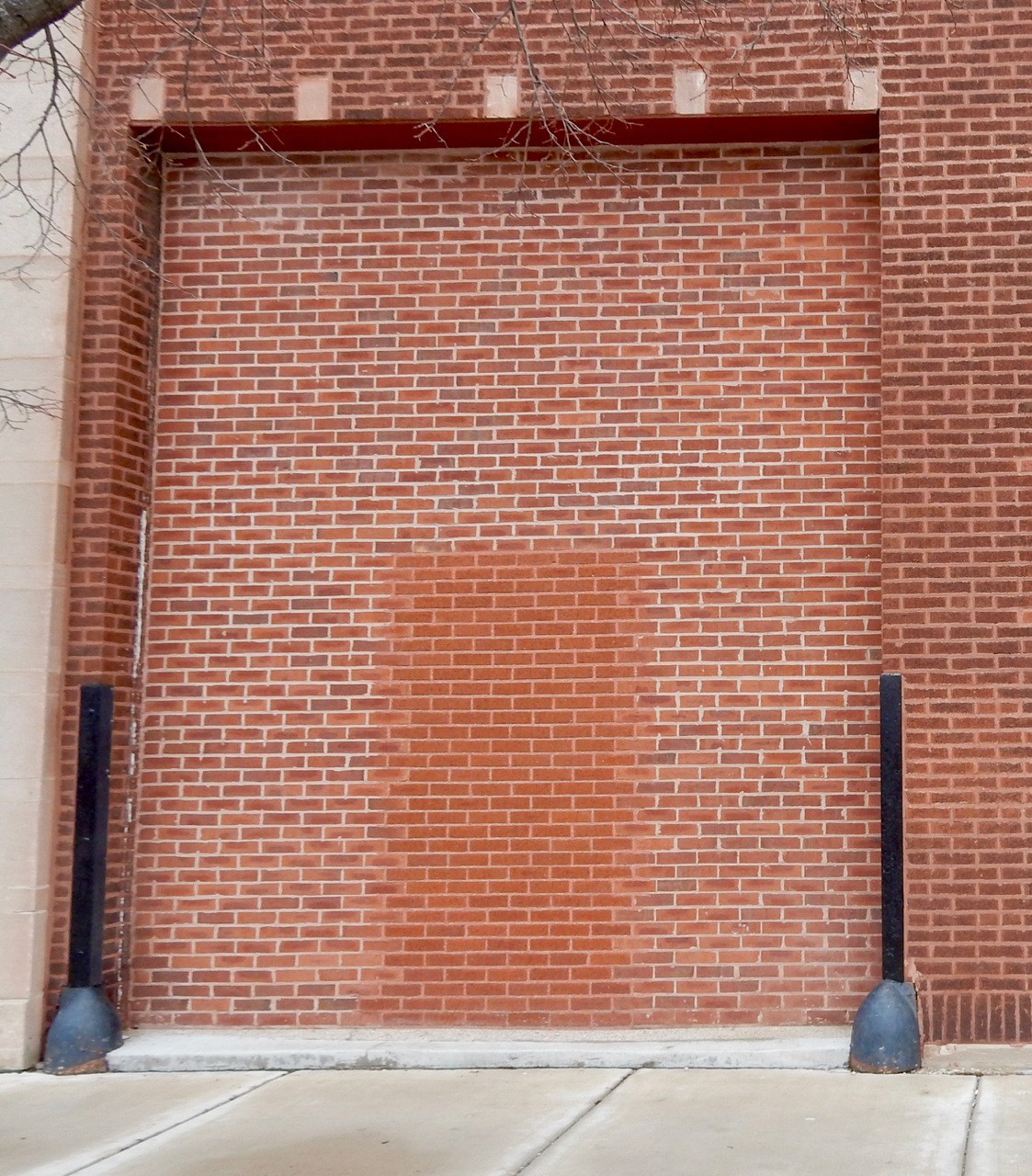
Hyperart: Thomasson, by Akasegawa Genpei. Kaya Press, 416 pages, 2010. ISBN: 978-1885030467. Paperback, $17.95. Why did it take me half a dozen years to discover this life-changing book, introducing a concept that fundamentally enriches my relationship to the built environment? The idea is the Thomasson, proposed as a form of “hyperart.”
Continue readingCalifornia Crazy and Beyond: Roadside Vernacular Architecture by Jim Heimann My rating: 5 of 5 stars 1980’s California Crazy was one of the early gospels for roadside art enthusiasts, documenting dozens of the state’s wonderful theme buildings of the early 20th century, from giant donuts to miniature sphinxes. Author Jim Heimann updated the book in 2001 with California Crazy and Beyond. The old version was presented as a logbook, and in some cases the images are larger. The new volume is redesigned as a more conventional picture book, with lots of additional pictures and a great deal more writing. Both
Continue reading